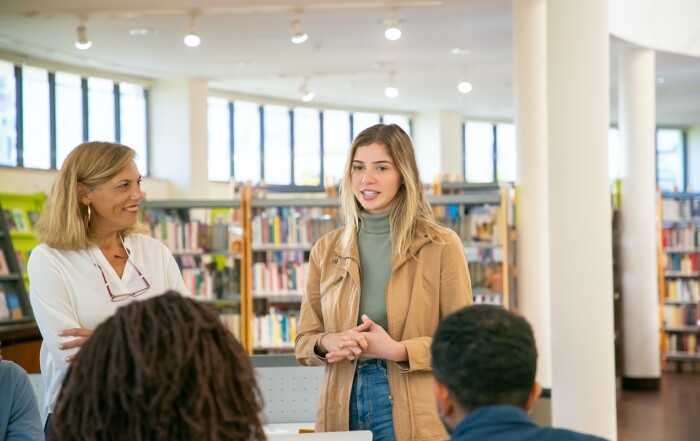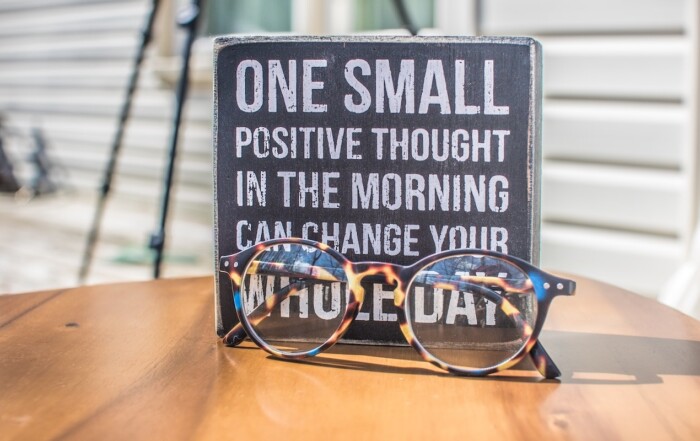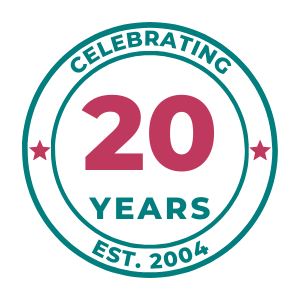College Admissions Tips and Guidance
Capstone Projects Offer Real-World Experience

Explore Our Articles
Recent Posts
Popular Categories
Get In Touch
On Social
By Phone or Text
(617) 734-3700
By Mail or Email
1678 Beacon Street
Brookline, MA 02445
By Form
Educational Advocates
Our objective is to guide the family in finding options where the student will not only get admitted, but thrive and find success once on campus.
Capstone Projects Offer Real-World Experience
Many colleges and universities offer, and in some cases require, a senior project, also referred to as an independent study or a capstone project.

Students learn multiple skills from the capstone project, including presentation and communication skills.
Capstone projects have a scholarly purpose, merging the concepts students learn throughout their undergraduate careers with an authentic research question. Students also learn skills that apply to their lives after college; working alongside faculty and peers mimics the dynamics of working with a superior and colleagues. It also prepares them for the rigors of graduate school.
A Critical Thinking Journey
At the College of Wooster, students work one-on-one with a faculty member to assemble a substantial research, scholarship, or creative venture. The college believes this process is one of the main reasons why 90% of Wooster graduates are employed within six months of graduation.
Anthony Dominguez, a former College of Wooster history major, found himself examining the history of ex-Chilean president Salvador Allende while on a study abroad trip to Chile. After reading a guidebook, that warned him against mentioning anything about the 1970s leader, Anthony found himself researching the famous coup and why native Chileans, including his host family, kept this part of their history shrouded in mystery. Kesang Chungyalpa, a political science major, studied the empowerment of women and wondered if there was a direct link between women’s independence and food security.
Hear what other Wooster students have to say about the process – or better yet, read all about I.S. here.
An Environment Studies Capstone
The University of Vermont offers a service-learning course to students in their senior year called Environmental Problem Solving and Impact Assessment that helps students identify an issue that interests them for their capstone project. Students are required to unite with a community partner, foster research on their partner’s obstacle, and consult with their professor and lab instructors on any concerns that arise.
Rebekah Gordon, a UVM senior at the time, joined forces with her classmates to map out a forest for a local school. After four years of large lecture hall classes filled with too many faces, she found that the smaller, more hands-on service-learning course allowed her to collaborate with students from various environmental studies backgrounds. Rebekah was interested in the educational aspects of the project, particularly in building dialogue among students about the importance of ecological conservation. Some of her peers were concerned with maintaining Vermont’s state parks or the Appalachian Trail.
“The benefit of working with peers with different interests was that we were exposed to components of the major that we had not considered before,” said Rebekah. “I learned about mapping and my peers saw the importance of teaching others.”
Limitless Possibilities
At the College of William & Mary, past research topics have included in-depth analysis of the French subjective tense, investigations of the legal systems in countries worldwide, and proposals to restore local historical structures. Beyond the practical skills students need to succeed after they graduate, William & Mary credits students’ participation in research with a rise in grades and student engagement.
The William and Mary research symposiums are twice-per-year showcases of student research through oral presentations and posters. Contributing students blog about the process, welcoming fellow students to follow along on their journey and ask questions.









